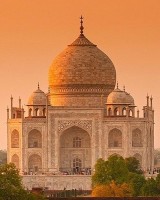Private guides and guided tours in Afghanistan
Private guides in Afghanistan
Private Guide in Kabul - Obaidullah
(Member Since 2023) Languages: Persian, Pashto, EnglishDiscover Afghanistan with a Local Guide I am a professional tour operator with a registered travel agency in Afghanistan, offering both individual and group tours across the entire country. My mission is to...

Afghanistan
Language: Dari
Currency: Afghani (AFA)
Calling Code: +93
CAPITAL CITY OF Afghanistan: Kabul
LANGUAGE OF Afghanistan: Dari
CURRENCY OF Afghanistan: Afghani (AFA)
COMMENTS ABOUT Afghanistan:
Afghanistan is a landlocked country in Central Asia
Cities : Kabul (capital), Ghazni, Herat, Jalalabad, Kandahar, Mazar
Best Places : Bamiyan, Band-e Amir, Shamali Plain, Panjshir Valley, The Salang Pass, Mazar, Jangi fortress, The Khyber Pass, The Minaret of Jam
Electricity : 220V/50Hz +/-50%
Calling Code : +93
Time Zone : UTC+4.5
Islamic republic - 34 provinces (velayat, singular - velayat); Badakhshan, Badghis, Baghlan, Balkh, Bamian, Daykondi, Farah, Faryab, Ghazni, Ghowr, Helmand, Herat, Jowzjan, Kabol, Kandahar, Kapisa, Khowst, Konar, Kondoz, Laghman, Lowgar, Nangarhar, Nimruz, Nurestan, Oruzgan, Paktia, Paktika, Panjshir, Parvan, Samangan, Sar-e Pol, Takhar, Vardak, and Zabol
CLIMATE OF Afghanistan: arid to semiarid; cold winters and hot summers
RELIGION OF Afghanistan: Sunni Muslim 80%, Shi'a Muslim 19%, other 1%
POPULATION OF Afghanistan: 31,056,997>>>>
HISTORY OF Afghanistan: Afghanistan's recent history is a story of war and civil unrest. The Soviet Union invaded in 1979, but was forced to withdraw 10 years later by anti-Communist mujahidin forces. The Communist regime in Kabul collapsed in 1992. Fighting that subsequently erupted among the various mujahidin factions eventually helped to spawn the Taliban, a hardline Pakistani-sponsored movement that fought to end the warlordism and civil war which gripped the country. The Taliban seized Kabul in 1996 and were able to capture most of the country outside of Northern Alliance srongholds primarily in the northeast. Following the 11 September 2001 terrorist attacks, a US, Allied, and Northern Alliance military action toppled the Taliban for sheltering Osama BIN LADIN. In late 2001, a conference in Bonn, Germany, established a process for political reconstruction that ultimately resulted in the adoption of a new constitution and presidential election in 2004. On 9 October 2004, Hamid KARZAI became the first democratically elected president of Afghanistan. The new Afghan government's next task is to hold National Assembly elections, tentatively scheduled for April 2005.
ECONOMY OVERVIEW OF Afghanistan: Afghanistan's economic outlook has improved significantly over the past two years because of the infusion of over $2 billion in international assistance, dramatic improvements in agricultural production, and the end of a four-year drought in most of the country. However, Afghanistan remains extremely poor, landlocked, and highly dependent on foreign aid, farming, and trade with neighboring countries. It will probably take the remainder of the decade and continuing donor aid and attention to raise Afghanistan's living standards up from its current status among the lowest in the world. Much of the population continues to suffer from shortages of housing, clean water, electricity, medical care, and jobs, but the Afghan government and international donors remain committed to improving access to these basic necessities by prioritizing infrastructure development, education, housing development, jobs programs, and economic reform over the next year. Growing political stability and continued international commitment to Afghan reconstruction create an optimistic outlook for maintaining improvements to the Afghan economy in 2004. The replacement of the opium trade - which may account for one-third of GDP - is one of several potential spoilers for the economy over the long term.1



 French
French Spanish
Spanish Russian
Russian
